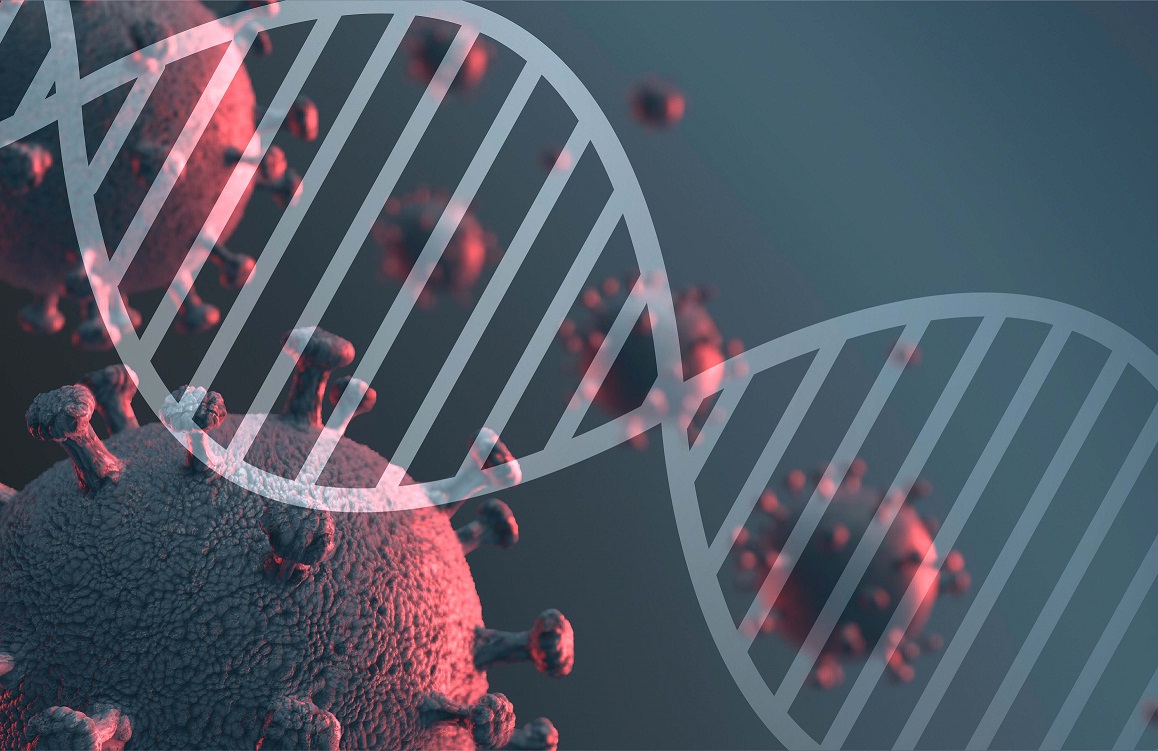Since the time the novel coronavirus, SARS-CoV-2, became a global threat, its manifestations and severity have been noted to range widely – from no symptoms at all to severe acute respiratory distress syndrome and other multi-system manifestations.
Researchers worldwide are working hard to understand the virus’s epidemiology, and some studies suggest that genetic aspects may play an important role.
Why is a certain subset of the population more prone to severe COVID-19 disease?
We know that older people and those with co-morbidities tend to suffer severe complications due to COVID-19, but disease response variabilities exist even in younger and healthier individuals. What is causing these variabilities? Perhaps the answer lies in the genetic makeup of the individuals.
Washington University School of Medicine in St. Louis, an RGA collaborator in the Longer Life Foundation, has joined 30 other genome sequencing hubs in undertaking studies to sequence the DNA of young, healthy individuals and children who develop severe complications despite having no underlying medical conditions. This analysis could reveal important immune pathways the body needs to fight the virus.
As with several other viral infections, at least one study has shown a close relationship between the genes that code for human leukocyte antigens (HLAs) and severity of COVID-19. HLAs are important proteins in determining how the immune system recognizes and mounts an immune response against infection. Research also suggests knowledge of HLA variation, through genetic sequencing, might provide critical information for effective vaccine design.
Similarly, toll-like receptors (TLRs), which have recently emerged as a key component of the innate immune system, play a role in detecting infection and triggering defense responses. TLRs could influence COVID-19 disease manifestation in men: Statistics suggest that almost 73% of severe COVID-19 cases in ICU in France were men, and a higher rate of mortality has been observed in men in many other countries as well. The copy number variation displayed in TLR genes is gender-specific, which may help at least partially explain the severity difference between male and female patients.
Collaborative studies to identify the role of genes and disease severity due to COVID-19
To establish the link between genetic composition and COVID-19 disease severity, Genomics England and GenOMICC (Genetics of Mortality in Critical Care) aim to sequence 35,000 COVID-19 patient genomes from individuals with mild, moderate, and severe disease to understand how a person’s genome could play a role in disease severity. Efforts led by consumer genetic testing companies are offering free genetic tests to patients infected with COVID-19 and using the results to study disease severity and genetic factors.
A recent study published in The New England Journal of Medicine shows that gene variants likely explain why some people become severely ill with the virus and why some remain asymptomatic. Interestingly, this genome-wide association study identified a 3p21.31 gene cluster as a genetic susceptibility locus in patients with severe COVID-19 disease. It also confirmed that blood group O individuals may be at lower risk of falling ill with COVID-19, whereas blood group A was associated with a 50% higher risk of requiring oxygen or ventilator support if infected with SARS-CoV-2.
Summary
Genome studies are increasingly helping scientists understand disease epidemiology and pathophysiology, as well as design new and precision treatments. A greater focus on genome sequencing of individuals to understand the biological impact of the virus may help identify individuals or populations at increased risk of developing serious or life-threatening complications.
The global initiatives underway will help unravel many questions, including why certain individuals and genders are more at risk and why some people resist infection despite frequent exposure to the virus. Genome studies continue to play an important role in understanding COVID-19 epidemiology and could lead to more targeted therapeutic and vaccine strategies, contrary to a “one size fits all” approach.



